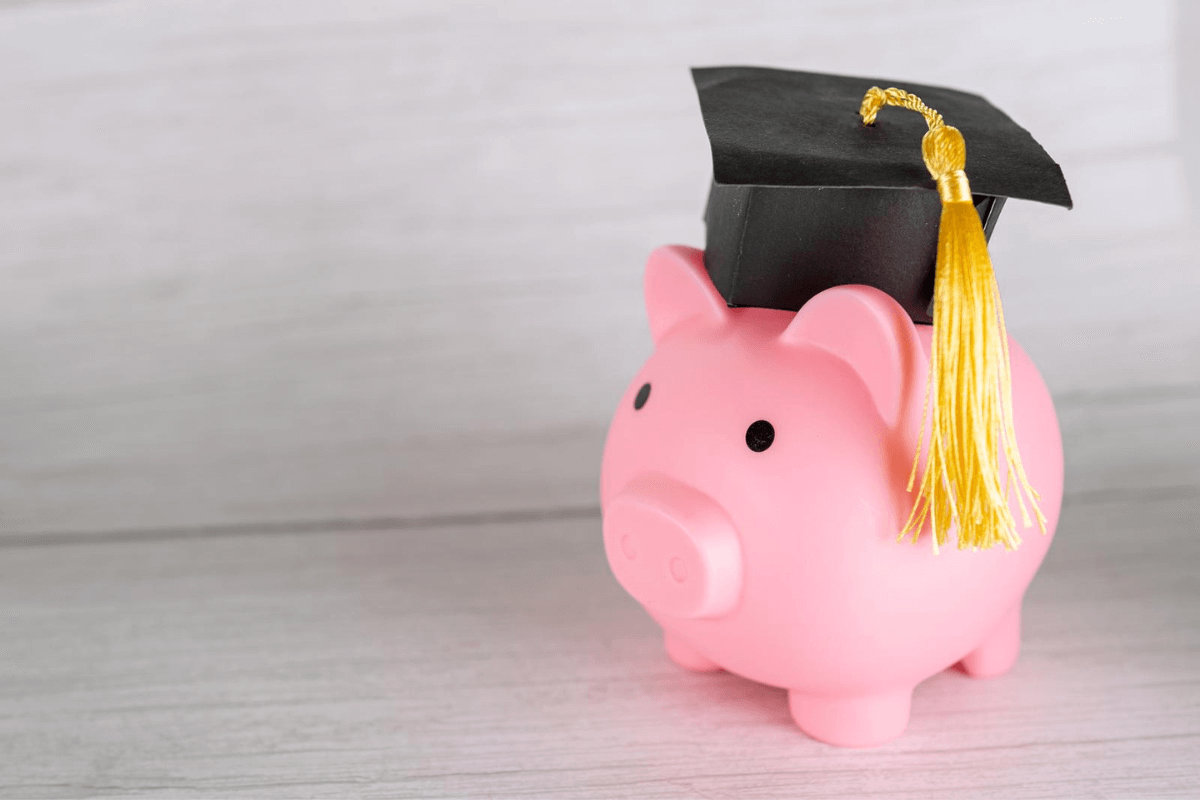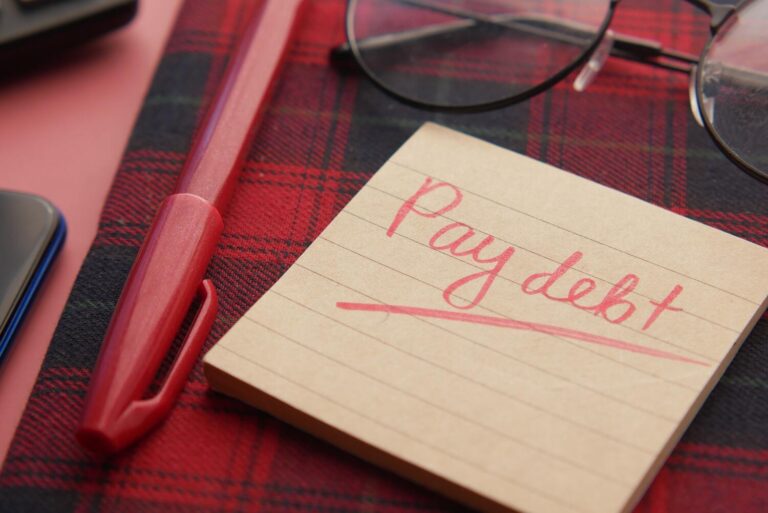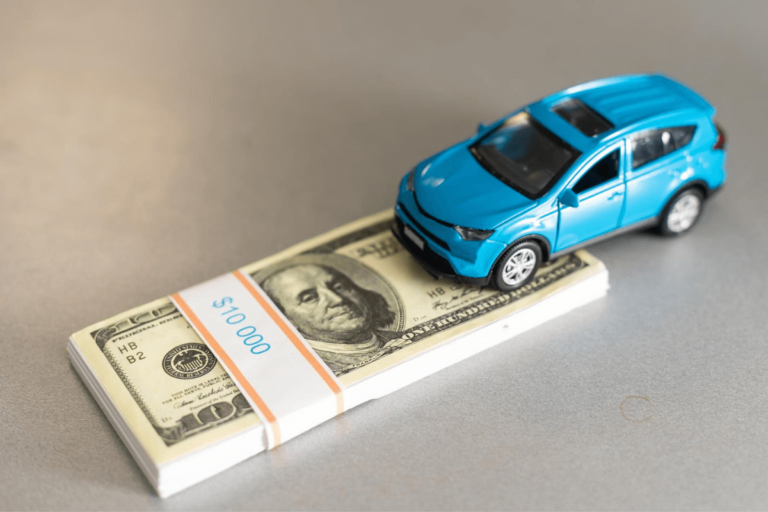How To Pay off Student Loans: Tips Most Borrowers Don’t Know

Repaying student loans can be a daunting task, but it’s not impossible. Even though it might seem like you’ll never find your way out of student loan debt: You will.
The trick is to know how to pay off student loans with some simple tricks that can save time and money.
Of course, there are some actions you can take to help you repay your student loans faster. Unless you’ve spent a lot of time studying the ins and outs of student loan repayment, you may be missing a few crucial tips to help make your repayment process easier and save you money.
Here’s how to pay off student loans with some tips that most borrowers don’t know.
How To Pay off Student Loans: 5 Tips You Probably Don’t Know
These savvy student loan moves can translate into money saved and help you reach your financial goals faster.
Let’s get working paying off those student loans.
1. Take Advantage of the COVID-19 Forbearance
The CARES Act stimulus check isn’t the only benefit the federal government rolled out to help offset the economic hardships brought on by the pandemic. In fact, the federal government also initiated a plan to help student loan borrowers by offering forbearance on federal student loans until September 30, 2020.
Now, you might be wondering, “Is it really worth it?”
True, if you continue to make payments during this period, your payments are applied directly to the principal of the loan. For some, making months of payments interest-free will save you money because your balance will be much lower by the time that you start paying interest again.
However, it’s really worth it for those who are pursuing Public Service Loan Forgiveness (PSLF). If you had a Direct Loan and worked for a qualifying employer prior to the federal forbearance period, you’ll receive PSLF credit throughout the suspension. It’ll be as if you had been making on-time monthly payments throughout this financially tough time even without actually having the make them.
The forbearance period runs from March 13, 2020, to September 30, 2020, for a total of seven monthly payments. You’ll get PSLF credit during this time which gets you that much closer to loan forgiveness without spending a dime.
2. Apply Extra Payments to the Principal
Wondering how to pay off student loans faster? One effective way is to make extra payments toward the principal.
As you earn more throughout your career, you might find that you have extra room in your budget every month. These extra funds can be a great boost when trying to repay your debt. The more you lower your principal loan amount, the lower your interest will be on a smaller amount over time, which could save you hundreds or thousands in interest.
Just make sure to avoid the common mistake of accidentally applying the payments to your next due date (essentially paying your next month early), instead of paying the principal on your loan.
Your loan servicer’s website might automatically apply additional payments toward advancing your payment rather than the principal, so confirm that you’ve opted out of advanced payments.
If you can’t figure out how to do this on your loan servicer’s website, give them a call to apply the extra payment over the phone.
3. Save On Interest as Your Credit Improves
Chances are your credit might improve throughout your career as you earn more and develop an on-time payment history. Positive credit signals like this are reported to the credit bureaus and help increase your credit score.
With a higher credit score, you might qualify for lower interest rates by refinancing your student loans with a private lender. When you refinance your student loan, your refinancing lender pays your original loan(s) in full, and a new loan is created. Ideally, your stronger credit will earn you a better interest rate and favorable terms. A reduced interest rate can save you money over the life of your refinanced loan.
With that saved cash, you have the option of applying it toward the principal of your loan to get out of debt faster. The money you save through refinancing can also be used toward other immediate financial goals, such as a major life purchase.
Occasionally borrowers pursue refinancing if they’re at odds with their loan servicer and feel their experience would be markedly better with a different servicer. Remember, there could be fees to refinancing, and if you refinance federal student loans you do lose your eligibility for programs such as Income-Driven repayment or loan forgiveness.
Make sure to weigh the pros and cons of losing federal benefits before refinancing federal student loans.
4. Check To See if You Qualify for Public Service Loan Forgiveness
Qualifying for Public Service Loan Forgiveness (PSLF) can be tricky since you need to make 120 qualifying payments while working at an eligible employer. Your federal student loans must also be eligible for PSLF in the first place. Of course, if you don’t have the right loan, you can consolidate your loan into a Direct Consolidation Loan and start the PSLF from there.
There are 17 different loans that qualify — which most people don’t know about. In fact, some of the qualifying loans don’t even show up in the National Student Loan Data System when you search for them, which could make it really hard to determine if you qualify for them. These are loans such as Nursing Student Loans, Health Professions Student Loans, and Primary Care Loans, among others.
There’s a high chance you could get confused about these loans and assume they were private loans that need to be repaid, when in fact they are federal loans that you could possibly have forgiven.
If you’re not sure, it’s worth it to double check your loans to see if you might qualify for federal student loan forgiveness.
Pro tip: If you notice loans with a 5% flat interest fee, those are likely federal loans.
5. Enroll in Automatic Payments
When it comes to saving money on interest, every little bit counts and one way to reduce your interest rate with some private lenders is by signing up for automatic payments. When you sign up for auto-pay, your monthly loan payments are automatically withdrawn from your account on your due date.
If you always have enough money in your account to cover your bills and aren’t worried about a returned payment fee, automatic payments can make it much easier to manage your finances.
Since you’ll never forget a payment, you’ll never have to worry about late payment fees.
The best bonus though is the interest rate reduction, with some lenders reducing your interest rate by up to 0.25% for enrolling in autopay.
A reduced rate means less paid in interest, which in turn means you’ll be able to pay your student loans off even fast because more will be going to the principal.
Combine Student Loan Tips for Even More Savings
Want to save even more on your student loans? Look to combine the tips discussed above for maximum savings on your student loans.
If you haven’t already, check to see if you qualify for PSLF and take advantage of the forbearance offered through the CARES Act. Even if you’ve been paying your loans for some time, you may still have been making qualified payments that count toward the 120 needed for student loan forgiveness.
If you don’t qualify for PSLF, or just want to pay your loans off quickly, look to apply extra principal only payments to reduce your balance and interest amount. Check to see if enrolling in automatic payments will earn you a reduced interest rate for even more savings. Additionally, if your credit score has improved you might look to refinance your student loans for better terms, which will save you even more money over the life of the loans.
Final Thoughts
Student loan debt can be a significant burden that you may feel you’ll never escape from, but with perseverance it is possible to pay them off. A lot of it is knowing how to pay off student loans and the tricks that are out there.
But it isn’t enough to just make your payment every month. You should be actively looking for ways to save money on your student loans and avenues to pay them off faster.
The above student loan tips will help you do just that. Even if you don’t qualify for some of the lesser-known tips, you can always make extra payments or look to refinance for a lower rate.
Now that you know how to pay off student loans, what student loan tips can you take advantage of?
This article is originally on Savoteur.






